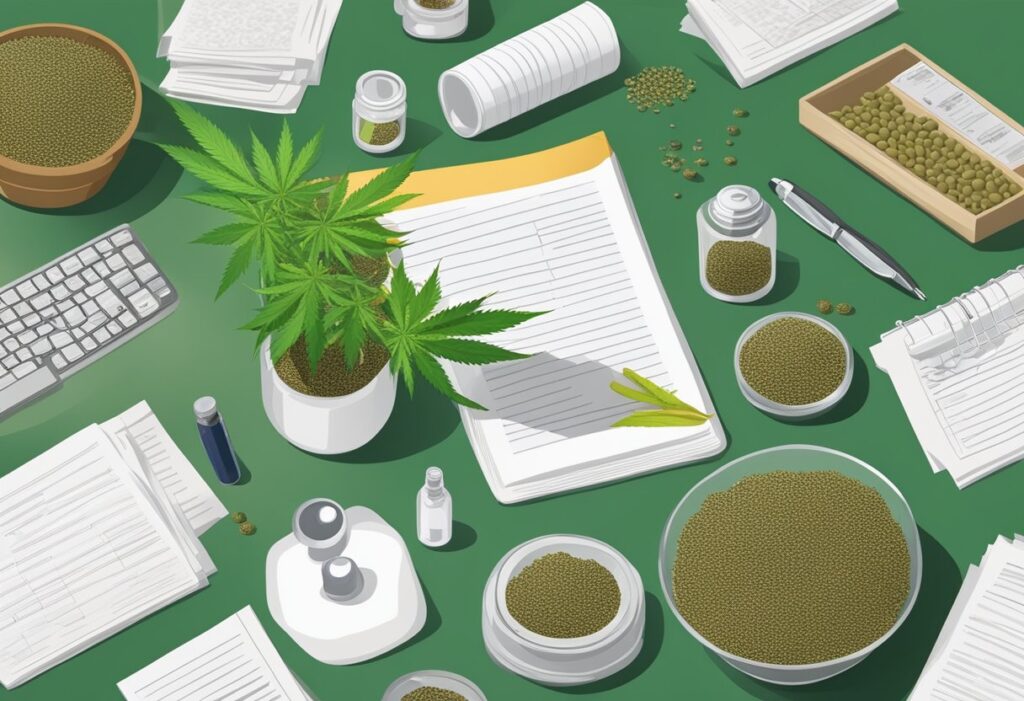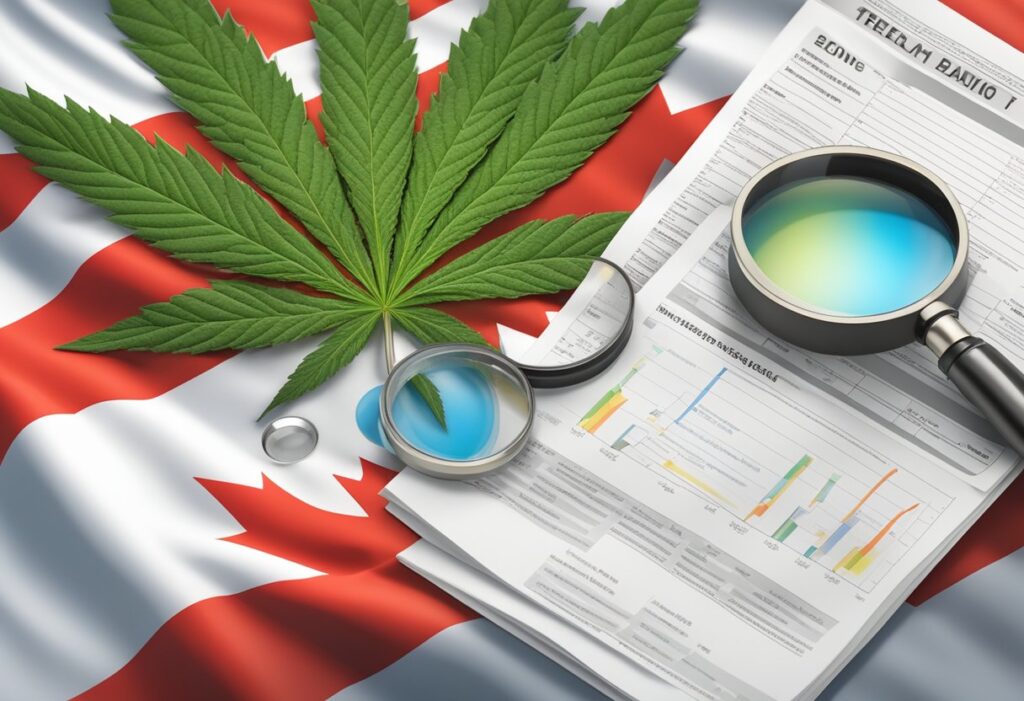
The therapeutic applications of marijuana seeds largely derive from the cannabinoids present, such as CBD and THC, which interact with your body’s endocannabinoid system to offer symptom relief for various conditions.
Your body’s response to pain can be altered by the cannabinoids found in marijuana seeds, such as THC and CBD. Randomized controlled trials have demonstrated the efficacy of medical cannabis in the management of chronic pain, often associated with conditions like multiple sclerosis and neuropathic pain. Additionally, cannabis use may offer relief in neurological disorders like epilepsy, including severe forms such as Dravet syndrome and Lennox-Gastaut syndrome, and Parkinson’s disease, by modulating neurotransmitter activity within the central nervous system.
You may find support for mental health conditions through the therapeutic use of cannabinoids. Evidence suggests potential benefits for individuals with posttraumatic stress disorder (PTSD), anxiety, and depression, which can be deeply intertwined with sleep issues such as insomnia. The compounds from marijuana seeds interact with your brain’s serotonin and endocannabinoid receptors, playing a role in mood regulation and quality of life improvements.
In the context of cancer treatment, therapeutic effects of compounds from marijuana seeds can play a supportive role. Cannabinoids have been studied for their ability to alleviate chemotherapy-induced nausea and vomiting. Moreover, they may serve as an adjunct in improving appetite and weight management for individuals dealing with AIDS and HIV-related anorexia. While ongoing research is aimed at understanding the full scope of these benefits, cannabis seeds offer a complementary option to enhance your therapeutic regimen.

In Canada, your legal access to marijuana seeds, whether for therapeutic or recreational purposes, is governed by a robust regulatory framework. The national approach towards this is defined by the Cannabis Act, with additional provincial variations tailoring policies to local needs.
The Cannabis Act, effective from October 17, 2018, is the cornerstone of cannabis regulation in Canada. Under this act, Health Canada is the primary federal regulator, overseeing the production, distribution, and sale of cannabis, including cannabis oil and cannabis plants. If you’re a patient, to access marijuana seeds for medicinal use, you need a medical document akin to a prescription, which differs from the model used for prescription opioids. Further, the Access to Cannabis for Medical Purposes Regulations guides how you can legally acquire these seeds.
While the federal government sets the primary legislation, individual provinces, such as Alberta, can implement their own policies within the provided framework. Each province decides how cannabis is sold, where stores can be located, and who can sell it. This means that the accessibility of marijuana seeds might vary depending on where you are in Canada. For instance, some provinces have government-operated stores, whereas others include privately run establishments.
Legalization has had a notable impact on both medicinal and recreational streamlining access. The legalization of recreational cannabis is handled separately from medicinal use, although the overarching guidance from Health Canada ensures safety across the spectrum. For medical purposes, a licensed producer can provide cannabis, including seeds, directly to you or your designated caregiver. Since the pandemic, adjustments were made to accommodate an agile approach to accessing these therapeutic products. The change aims to understand and bolster the therapeutic potential of cannabis, potentially aiding conditions like cancer. For recreational purposes, adults are allowed to purchase marijuana seeds from provincially-licensed retailers.
Remember, while the government of Canada has created avenues for legal cannabis use, specific restrictions and policies still apply, and you must adhere to them to ensure compliance with the law.

In Canada, the medicinal use of cannabis must be approached with caution, particularly considering the potential for adverse effects and the importance of adhering to recommendations by healthcare professionals.
When considering marijuana seeds for therapeutic purposes, you should be aware of a range of risks and side effects. Research indicates that while some individuals report improvements in quality of life, others may experience adverse effects. For instance:
The National Academies of Sciences, Engineering, and Medicine report that more evidence from randomized controlled trials is needed to fully assess the long-term health effects of cannabis use.
When using cannabis for medicinal purposes, consider the following best practices to mitigate risks:
Remember, as cannabis remains a controlled substance, following guidelines and regulations is crucial for your safety.
Hemp seeds are a rich source of gamma-linolenic acid (GLA), which may help manage the symptoms of premenstrual syndrome (PMS) and menopause. They also offer a balanced ratio of omega-3 to omega-6 fatty acids, supporting heart health.
While hemp seeds are generally safe for consumption, they can cause mild diarrhea if ingested in large quantities. It’s important to introduce them into your diet gradually to assess tolerance.
A typical serving size of hemp seeds is about two to three tablespoons per day. This amount allows you to reap the nutritional benefits without overconsumption.
In 100 grams of hemp seeds, you can expect approximately 31.56 grams of protein, making them an excellent plant-based protein source for various dietary needs.
Individuals with a sensitivity to THC, despite hemp seeds containing only trace amounts, should consult with a healthcare provider. Additionally, those with hemp allergies should avoid them.


WE ARE EVERY GROWERS ONE STOP SHOP TO ACQUIRE PREMIUM CANNABIS SEEDS FOR SALE IN THE USA, CANADA AND AUSTRALIA
Farmers Lab Seeds 2024,
All Right Reserved
Seeds are sold as novelty items, souvenirs, and collectibles. They contain 0% THC. We encourage our customers to check the legislation in their Country, State, Province, and Municipality prior to purchasing items from our store. We do not provide growing information.
All seeds are sold as hemp, and lab tested under 0.3% THC. This product is not for use by or sale to persons under the age of 21. This product should be used only as directed on the label. It should not be used if you are pregnant or nursing. Consult with a physician before use if you have a serious medical condition or use prescription medications. A Doctor’s advice should be sought before using this and any supplemental dietary product. All trademarks and copyrights are property of their respective owners and are not affiliated with nor do they endorse this product.
These statements have not been evaluated by the FDA. This product is not intended to diagnose, treat, cure or prevent any disease. Individual weight loss results will vary. By using this site, you agree to follow the Privacy Policy and all Terms & Conditions printed on this site. Void Where Prohibited by Law.